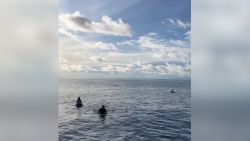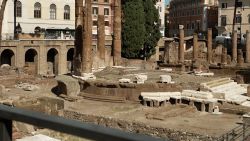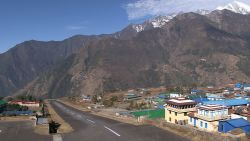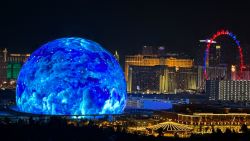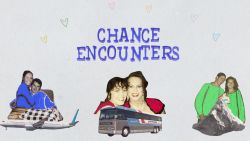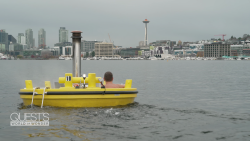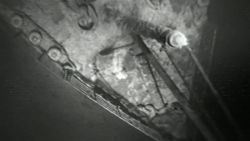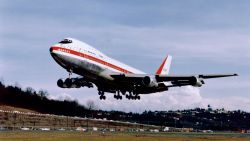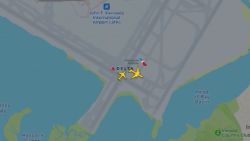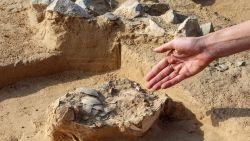Story highlights
U.S. passengers tell stories of "inexperienced, untrained" crew
Costa CEO: "Crew of the Costa Concordia acted bravely and swiftly"
New York woman disappointed in U.S. Embassy response
Passengers to receive refunds, reimbursement for lost possessions
Chaos and a lack of communication are common threads among American survivors’ stories of the Costa Concordia sinking, and making it to shore was only the beginning of a long ordeal for passengers trying to get home.
Melissa Goduti of Wallingford, Connecticut, boarded the ship about three hours before it ran aground Friday night, killing at least 11 passengers.
“All of a sudden, the boat leaned over like on a 70-degree angle, and everything just started falling – dishes were falling, trash cans were falling, everything was falling,” Goduti told CNN affiliate CTNow. “Then the lights went out and everything was blacked, out and then the lights came back on.”
Lynn Kaelin of Puyallup, Washington, told CNN affiliate KCPQ that it was “like having the Titanic without the water gushing through.”
“I called my husband, not knowing if I’d see him again,” she said. “I thought we were going to die.”
There were no announcements for a long time, and Goduti and her mother didn’t see signs directing them toward lifeboats.
“We were running around trying to ask what floor the lifeboats were on, and all the crew kept saying is, ‘you don’t need them, you’re fine, everything is fine, we just got hit by a big wave,’ ” Goduti told CTNow.
“All they kept saying was it’s a generator issue, just a generator issue and that the boat was floating along and just needed to get stabilized,” she said.
Nancy Lofaro of New Rochelle, New York, said the crew tried to do what they could, “but when we asked them, they said they had no information. They just didn’t have any information to give us.” Lofaro estimates the first announcement came 30 to 40 minutes after the ship ran aground.
Goduti and her mother feel lucky they found a lifeboat.
“When our lifeboat dropped, it dropped. It wasn’t an easy letdown by any means, but at least we got into the water and were safe, which is a lot better than, unfortunately, some people,” she said.
Costa staff in Lofaro’s lifeboat were debating who would drive the boat, and they didn’t seem to know what to do, she said.
Photos: The Costa Concordia disaster
Joan Fleser of Duanesburg, New York, seconds that opinion, calling the crew “inexperienced and untrained.”
In a letter to passengers, Costa Cruises CEO Pier Luigi Foschi disputes that assessment: “The crew of the Costa Concordia acted bravely and swiftly in an extremely difficult situation and succeeded – despite the terribly demanding conditions – in evacuating more than 4,000 people in the shortest possible time: we are proud of our commitment and dedication to your safety.”
He goes on to outline crew training, safety procedures and regulatory oversight.
Survivors of the disaster say the scene on land was equally chaotic. Fleser said the lifeboat ride to the Tuscan island of Giglio was the last she saw of Costa Cruises employees until she, her husband and daughter reached a hotel in Rome on Saturday.
The people of the island came out in force to help the stranded travelers, and a local priest opened up the church. Fleser and her family stayed at the home of a local family overnight.
“The people of the island were wonderful,” Fleser said.
Nancy Lofaro and her husband wandered around on shore, finding a church, a local cafe and a small hotel all packed.
“There was no organization. There was nobody, and the staff was in shock as much as we were. There were no announcements. We saw Costa people … walking around with a bullhorn, not using it,” Lofaro said.
Fleser and her family were herded onto a ferry to the mainland the morning after the wreck, “but we had no idea where we were going.”
Triage doctors, members of the coast guard, the Red Cross and other volunteer organizations met the cruise passengers and took them to a local school, where more local services were provided. Her daughter received a pair of sneakers there because she was still wearing high heels from the night before, Fleser said.
The family then boarded a bus to Rome, where they were dropped off at a hotel.
“The Marriott had no idea we were coming. All these refugee boat people land on their front door, and they say, ‘Who are you? But we’ll take care of you,’ ” Fleser said.
There were two Costa cruise representatives at the hotel, “but every time we asked them if they could do something for us, they said they had no authority,” she said.
The cruise line did pay for food, the hotel and their airfare home, Fleser said, although they booked them on a flight to Albany, Georgia, instead of Albany, New York – a mistake the family discovered in the Atlanta airport.
“Oh my god, we were just ready to lose it at that point.”
More than 1,100 Costa employees have been working to assist passengers and crew since Friday night, Foschi said in his letter to passengers.
The CEO of Costa’s parent company, Carnival Corp., pledged support to passengers: “I give my personal assurance that we will take care of each and every one of our guests, crew and their families affected by this tragic event,” Micky Arison said in a statement.
Before Fleser and her family could make the journey home, they needed new passports to replace those lost on the sinking ship.
The U.S. Embassy’s response was a big disappointment, Fleser said.
“Other than getting our temporary passports, they gave us no assistance whatsoever. No food, no clothes, no money, no transportation. They told us to borrow some money, get a cab, come on down.” A hotel shuttle took Fleser and other Americans to the embassy, she said.
State Department spokeswoman Victoria Nuland said the agency arranged with the cruise line to have American passengers transported to a Rome hotel and to the embassy for documents. More than 100 emergency passports have been issued to stranded travelers.
“We also provided all kinds of advice, telephone contacts to families, helped families create travel funds, provided them with passport photos, warm clothes, there were even a couple of families that needed diapers,” she said during a State Department briefing Wednesday.
Fleser and her family arrived home shortly after midnight Tuesday. They received a voicemail from Costa saying the family would be reimbursed for the cruise and articles lost on the ship, she said, but the message didn’t offer details of how those amounts would be determined.
In addition to arranging lodging, transportation and counseling for passengers, Costa will address possessions lost on board and is in the process of refunding cruise fares and costs incurred while on board, the company said in a statement.


